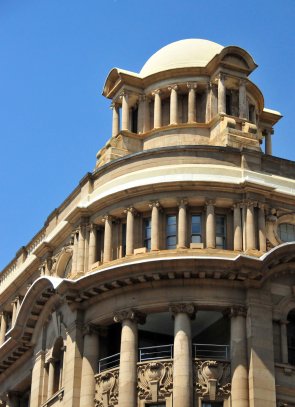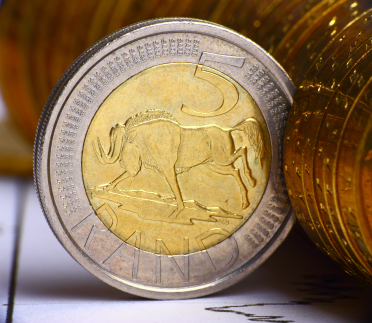Saving on Bank Fees
South African banks hold the dubious distinction of being amongst the highest in the world when it comes to charging customers for the use of account facilities. That said, we all need to have a bank account as it is virtually impossible to operate on an entirely cash basis, apart from being highly risky. There are certain measures you can take to reduce bank charges.

This all begins with understanding the banking system you use. Every year, each bank reviews its charging policies, and by law, they have to inform account holders of what and how they plan to charge for their services. Alas, many of us do not bother to read what we should.
Before we consider some of the 'bundle' options available from the banks with controlling costs in mind, here is a quick summary of various ways to bring down your bank's charges:
- When you need to use an ATM, always opt to use one from your own bank. Drawing cash from another bank's ATM's will attract a hefty surcharge, which you will only see reflected on your monthly statement long after transaction processing. Some ATM's will even throw up a screen message to ask if you really want to make use of the third party facility. Skip to the end of this article to see the costs levied by each bank.
- Understand your banking needs and habits. Simply by knowing your monthly requirements such as debit orders and cash withdrawals, means that you can choose the most competitive banking product to service those needs.
- Conduct a survey of the banking facilities on offer from your bank, as well as what the others have available. It is all about being cost effective, but hold in mind that the banks change their products and charging structures at least once a year - and sometimes even more often. In order to remain competitive, banks do make routine product changes, and what may be a good deal now may turn out expensive this time next year.
- Try to avoid using in-bank facilities such as tellers. Whether depositing or withdrawing, opt to use the ATM, which will work out cheaper. About the only time to consider using a teller in preference over an ATM, is the cost factor of the time you have to wait in the queue at the dispensing machine. Mind you, even teller queues are subject to long delays during busy times.
- Do not issue cheques, even if you can find anyone willing to accept them. All the banks apply heavy charges for cheque use, and that is because they want you to use modern banking tools such as electronic transfers. Cheques are also easy targets for fraud-minded crooks.
 "PAYT" versus "Bundled"
"PAYT" versus "Bundled"
A lot of us are paying bank charges based on the "pay-as-you-transact", or PAYT basis, and this could end up costing you more than using the "bundled" option. The PAYT accounts available through the likes of Nedbank, ABSA, FNB, Standard and Capitec are more expensive to operate than their bundled equivalents. Bundled accounts operate on a structured monthly tariff. The costs are usually set somewhere between R80 and R150 per month, either on a fixed, but sometimes on an open-ended transaction limit. In most cases, bundled accounts also include a credit card and the option of an overdraft facility.
 The Cheapest Is?
The Cheapest Is?
According to recent market research conducted by the Solidarity Research Institute, Absa's so called Silver Value Bundle is the cheapest option with a fixed cost of R79 a month applying. FNB's Smart Cheque Limited follows, costing R84 a month, then Nedbank's Savvy current account (R89) and finally Standard Bank's Elite Plus option at R99 a month. The survey took into account four different transaction profiles applying to bank customers. Starting with the lowest at 12 transactions per month, it also monitored 17, 24 and 29 transactions on an "all-in-one-mix approach".
None of the big four seemed to be prepared to charge less than R79 per month, even with a transaction count of well under 12 movements.
 Enter Capitec Bank
Enter Capitec Bank
Capitec joined the commercial banking sector a number of years ago, and are admired and well supported thanks to their innovative and creative banking options. One of their products is their Global One account, a PAYT-only account offering. A standard administration fee of R4.50 applies per month and you pay just R1 to withdraw your money from Pick 'n Pay, Shoprite or Checkers. Using an ATM will result in a R4.30 cash withdrawal fee from a Capitec machine, and R7.00 from other bank's ATM's, considerably cheaper than the charges the big four apply! At this stage, Capitec have not offered a credit card or overdraft facility with their Global One product.
 Clear Message
Clear Message
The days of cheap banking are gone for now, well at least until one of the big financial institutions decides to declare war on charges. Nobody likes bank charges and the only way you can manage nasty shocks each time you get your statement, is by being streetwise with your banking affairs. It all starts with understanding your personal situation clearly. Only then can you approach your bank with a view to more palatable fees. None of us really wants to pay anything, but we have to be realistic when it comes to matters banking in South Africa. The days of stuffing bank notes inside your mattress are gone, so try to smile as you "bite the bullet".
 Danger: Minefield Ahead
Danger: Minefield Ahead
It certainly pays to know that, should you decide to withdraw cash at another bank's ATM, you are going to pay for the privilege – forewarned definitely means forearmed in this area:

Capitec: A fixed fee of R7 per transaction applies across the board.
FNB: R6.50 initial fee, plus R6.30 per R500 or part thereof. A maximum R25.20 applies.
Standard Bank: R10.20 initial, plus 1.05% of the transaction value.
ABSA: R9.95 initial fee, plus R1.15 per R100 withdrawn.
Nedbank: R9.50 initial fee, plus R1.25 per R100.
(With due acknowledgement to Solidarity Research Institute)
 A Word from Our Sponsor
A Word from Our Sponsor
Closing out on the subject of bank charges, never assume that a bank does not err. Learn to scrutinise your statement thoroughly immediately after you receive it. Check everything carefully. I recently checked through my credit card statement to find that the bank had raised a charge of R230 for "insufficient monthly payment". I pointed out that I had actually made two payments, both in good time, but on different dates and totalling more than the amount due.
The Call Centre operator fobbed it off as a probable programming error. There was no apology forthcoming, but I did get the evil debit reversed, less the cost of my rather long phone call. No names mentioned but as a clue, it is definitely not a First (National Bank) occasion!

